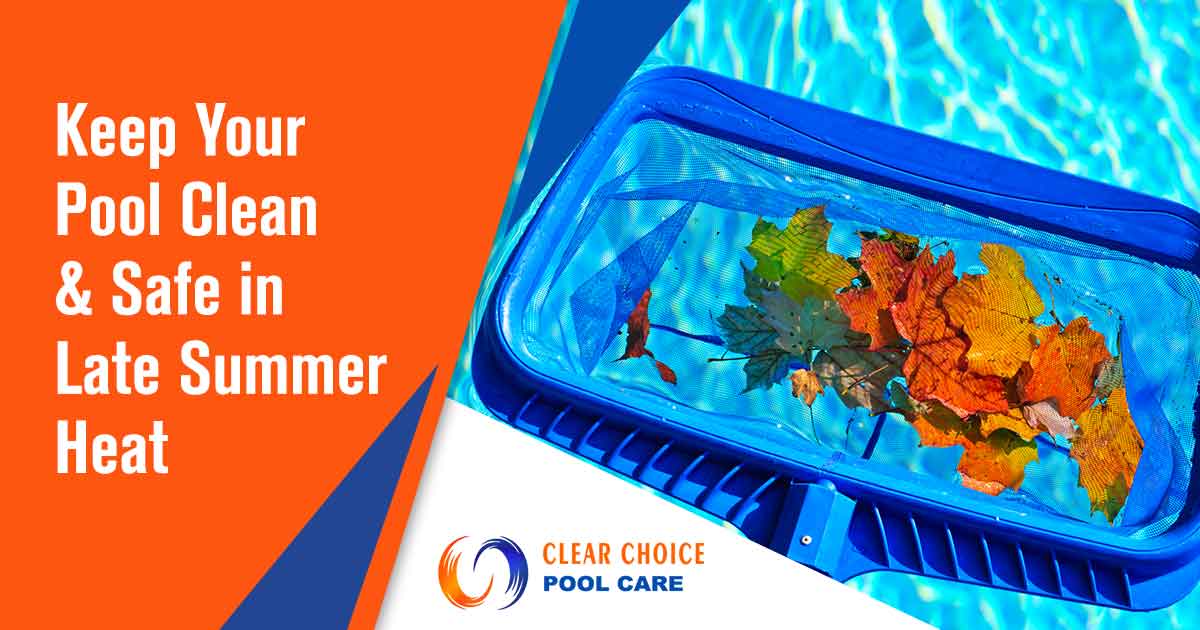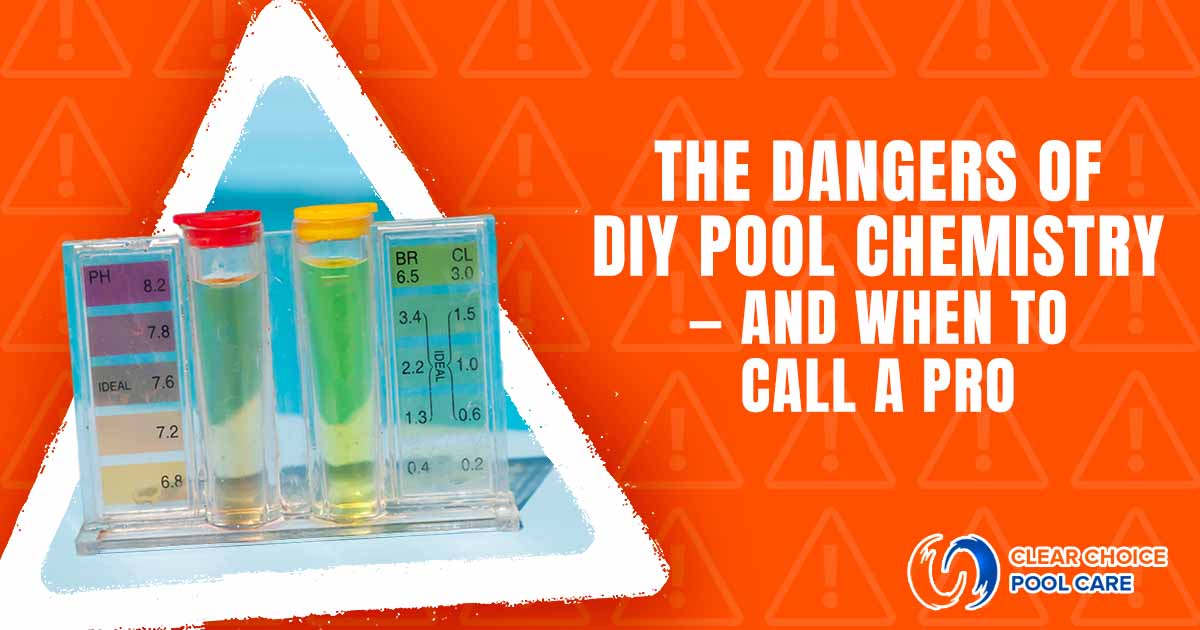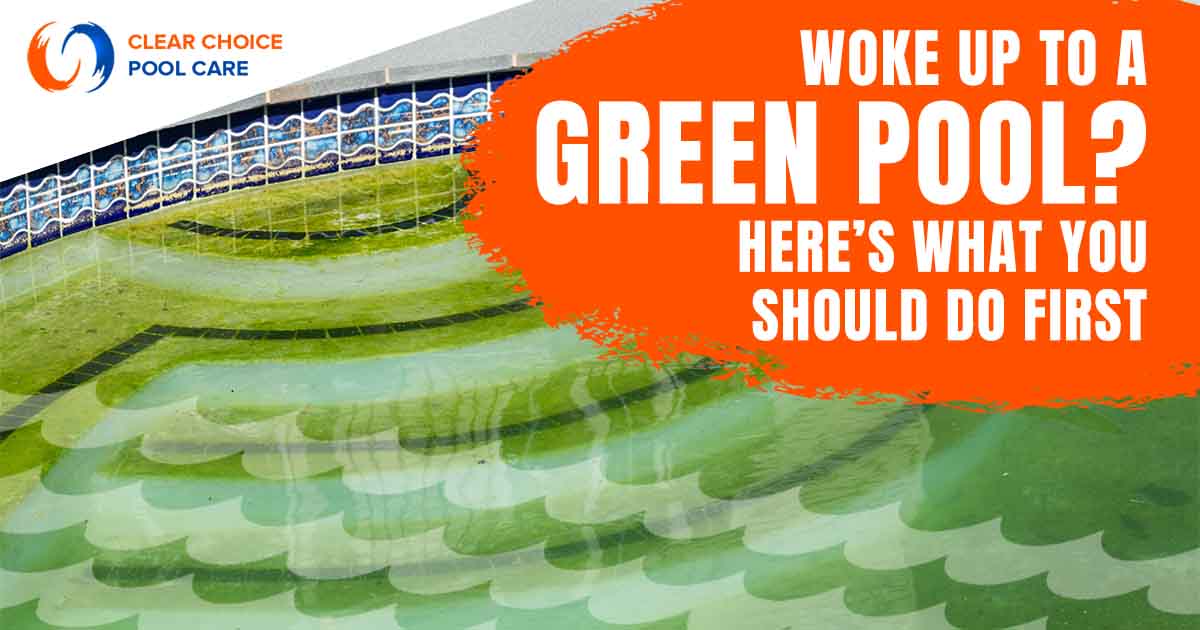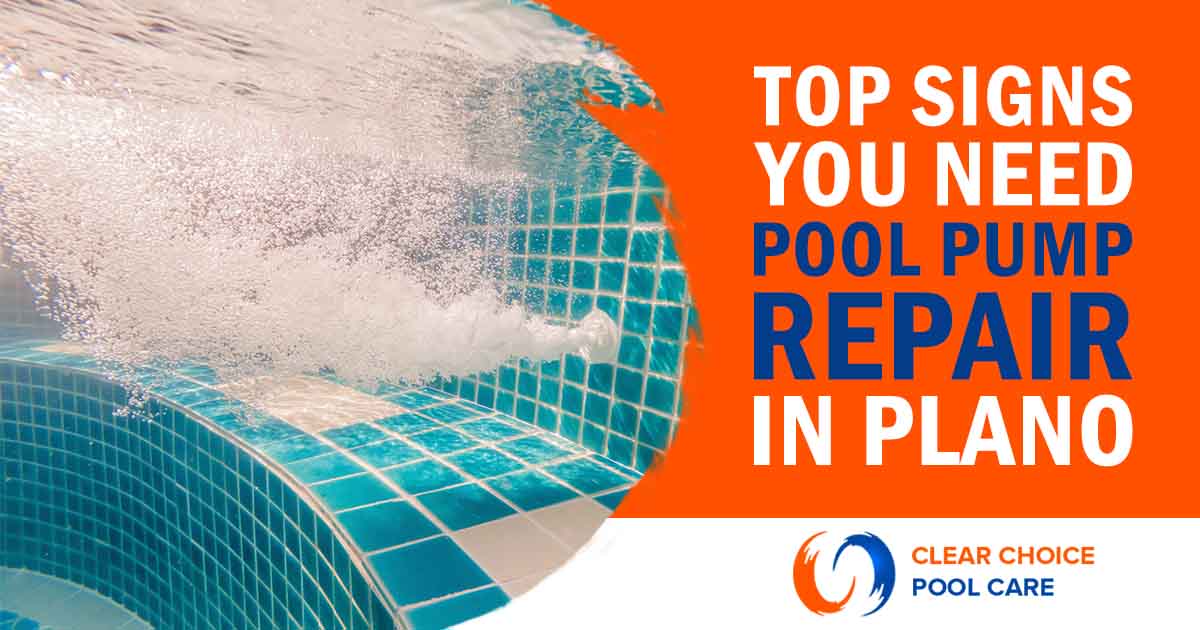Keeping your pool clean and regularly maintained is necessary to keep your pool safe and free of debris and germs. As summer winds down and fall sports pick up, it’s tempting to let pool chores slide. Don’t let your pool fall into disarray. Here are some tips on how to keep your pool clean through the rest of the season.
How Hot Summers Affect Your Pool
Hot summers increase the risk of bacterial and germ growth in your pools because the sunshine affects pool chemicals. Typically, the hotter it is, the more you and others want to use your pool. When more people are in the pool, the amount of debris, sweat, oils, and other contaminants introduced into your pool’s water is increased.
Sunshine and Pool Chemicals
Sunshine affects the dissolution of chlorine in your pool and can decrease the chlorine concentration by as much as 90% in two hours. As the chlorine concentration decreases, the pH increases. These changes after the germ-destroying characteristics of your pool chemicals.
Sweat and Oils from Swimmers
Sweat and oils from swimmers can react with the chlorine or other disinfectant in your swimming pool and create disinfectant by-products. These by-products can require adding more chlorine or disinfectant to your pool to keep it clean and safe.
Food and Drink Spills
It’s important to keep food and drinks away from your pool’s water. Food and drink spills can contaminate the water, add excess waste, and make your pool chemicals unbalanced.
Pool Maintenance Tips for Late Summer
Pool maintenance is important throughout your entire pool season, but it’s especially important in late summer since pool season is typically coming to a close. You don’t want to end the season with a dirty pool; when you reopen it, it will be in terrible condition since the sanitizer won’t work effectively. In late summer, you’ll want to make sure you skim, brush, and vacuum your swimming pool, check the filters, and test your chemicals.
Skimming Your Swimming Pool
Skimming your swimming pool’s surface with a pool skimmer net helps maintain a hygienic and clean pool. Skimming your pool’s surface regularly will keep debris like leaves and insects from sinking to the bottom, which makes it more difficult to clean your pool. Empty debris from your skimmer basket regularly to avoid clogging and maintain good water circulation. Your pool’s surface should always be skimmed before using any other cleaning equipment. During peak use or when there are storms and high winds, you may need to skim your swimming pool at least once a day.
Brushing Your Swimming Pool
Using a pool brush to thoroughly scrub your pool’s walls and floor to remove any dirt buildup or algae. Pool brushes come with nylon bristles only, stainless steel bristles only, or both stainless steel and nylon bristles. The type of pool brush you use for brushing your pool depends on your pool’s surface. Using the appropriate brush is important to avoid damage and ensure effective cleaning and removal of algae, debris, and other buildup. Regularly brushing your swimming pool helps maintain a clear and clean pool.
Vacuuming Your Swimming Pool
Vacuuming your swimming pool should be done after you’ve brushed your pool and will remove any dirt or debris that settled on the bottom of the pool after brushing it. If your pool doesn’t have a built-in vacuum, you can use a handheld or manual pool vacuum that will attach to your pool’s filter system. Both automatic and manual pool vacuums are effective, but the manual pool vacuum will require more time and effort to clean the entire pool.
Checking Pool Filters
Checking pool filters should be done regularly. If you regularly check your pool filter, you’ll be able to discover any problems early and can take care of them before they become more serious.
Keeping your pool’s filter well maintained and clean is an important part when it comes to keeping your pool’s water safe to swim in, clean, and free of small particles. If your pool filter becomes clogged, it can no longer remove debris, contaminants, and small particles from the water and help prevent the growth of harmful bacteria and algae. Some clogged or backwashed filters can be cleaned by hosing them off, but some will need to be replaced.
Testing Pool Water
Testing pool water is important since a proper chemical balance is necessary to keep your pool clean and safe to swim in. Pool testing kits can be used to check chlorine, pH, and alkaline levels in the water. Adjust any levels as needed using pool chemicals.
Sticking to a Pool Care Routine
A pool care routine helps ensure your pool stays clean and safe for swimming. Sticking to your pool care routine keeps algae and bacteria from building up and ensures the water doesn’t become dirty, murky, and unsafe. Additionally, regular maintenance can extend the life of your pool equipment.
Know When to Call Professional Pool Cleaners
Many pool owners find routine pool maintenance requires a large amount of energy, time, and resources. Instead of carrying out a potentially time-consuming and labor-intensive task, some pool owners choose to hire professional pool cleaners.
Don’t Guess When It Comes to Pool Care
When it comes to pool care, if you run into any issues or are unsure how to properly maintain your pool, you should always contact a professional pool cleaning service. Clear Choice Pool Care is a licensed pool maintenance service with years of experience that can take the guesswork out of your pool care and keep your pool in tip-top shape.
A Clean Pool is a Safe Pool
A pool full of dirt and debris may also be full of unhealthy germs and bacteria. Hiring a trusted and reliable swimming pool maintenance service like Clear Choice Pool Care will help keep your pool clean, safe, and healthy.





